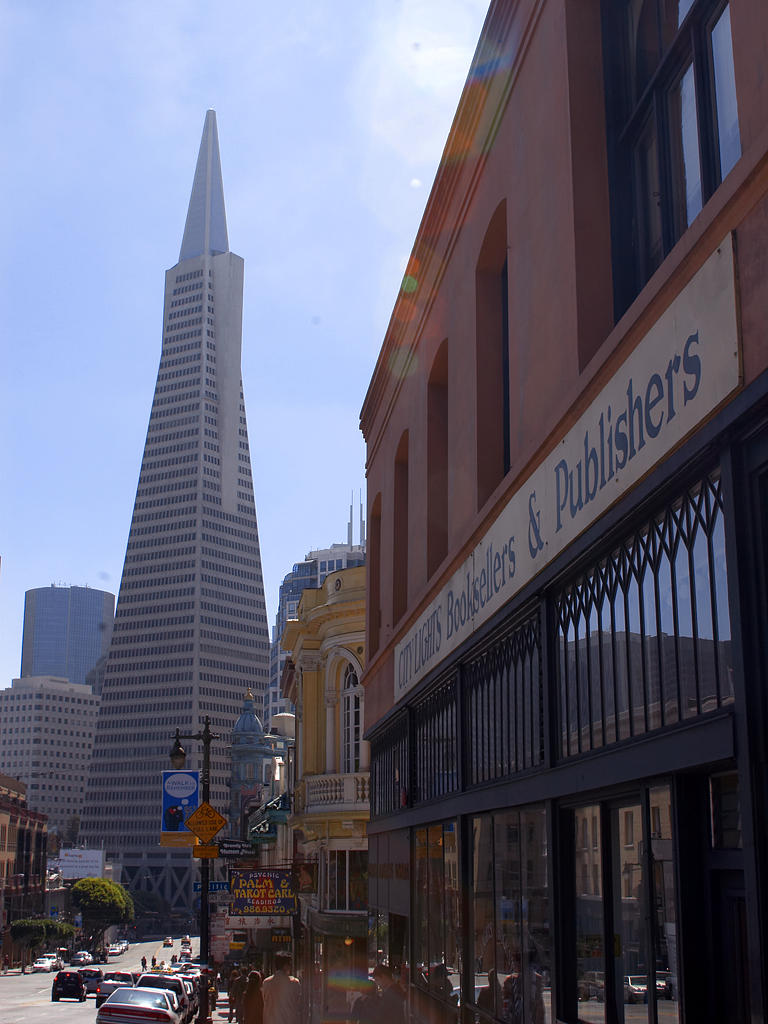The Board of Supes, by a 8-2 vote, just undid decades of careful planning work in North Beach and the surrounding neighborhoods, opening the path for larger storefronts and bigger businesses and less diversity in the local shops.
District 3 Supervisor Danny Sauter pitched his deregulation bill as a way to address vacant storefronts, but his critics, including businesses like City Lights Books, Tony’s Pizza and Spec’s, say the neighborhood is thriving, and this is a solution in search of a problem.

And, as Sup. Shamann Walton noted, the city has approved taxes on vacant storefronts, “and we should use the tools we have.”
Sauter’s plan eliminates the North Beach Special Use District, which limits the size of commercial space to protect smaller businesses that can’t afford the rent of larger spaces, protects residential uses above the ground floor, and limits the number of bars and restaurants in some areas.
As a letter to planners from the Telegraph Hill Dwellers notes:
Discouraging storefront mergers has helped to preserve our vibrant neighborhood, minimize commercial vacancies, and retain small businesses, including our numerous Legacy Businesses, that would have long disappeared without these controls. These provisions have long proven successful in protecting the delicate ecosystem of our celebrated neighborhood-serving businesses by incentivizing landlords to retain existing small business spaces that command lower per square foot rents than larger storefront
Richard Drury, a lawyer representing Small Business Forward, the Jackson Square Historic District Association and Telegraph Hill Dwellers, wrote to the supes Oct. 27 saying that the rezoning should require a full analysis under the California Environmental Quality Act:
The [Planning Dept.] Staff Report contains a single sentence stating that the Rezone is not a “project” within the meaning of CEQA because it will not have direct environmental impacts.
This is incorrect. The Rezone is a “project” because it is an essential step that may lead to direct or indirect environmental impacts.
There are also lasting implications for historic structures—and North Beach history.
Drury notes:
As explained by expert Architectural Historian Bridget Maley: The proposed new definition of historic resources references Planning Code Section 102 which does not include eligible National or California Register Historic Districts and their contributors as historic resources or resources identified through survey or inventory. By eliminating these important protections for historic resources, the Rezone would have adverse impacts on historic resources, including the fully documented, but not yet to be formally designated North Beach National Register of Historic Places Historic District. These impacts must be analyzed and mitigated through proper CEQA documentation. If mitigation is not feasible, then a statement of overriding considerations would be required.
Sauter and many of his colleagues support the efforts to upzone large parts of the city to allow more housing. But Drury argues that this plan is inconsistent with that goal:
By eliminating the North Beach SUD, the Rezone will eliminate these important protections against displacement. Put simply, as a result of the Rezone, residential units above the first story may be and will be eliminated whereas, such displacement is flatly prohibited under the existing code … Allowing displacement of residential units with commercial businesses above the first floor runs directly contrary to the City’s efforts to increase residential and “Family” zoning in the City and violates the recently enacted Housing Crisis Act (HCA).
Sup. Connie Chan, who grew up in the Chinatown/North Beach neighborhood, tried to send parts of the measure, including the elimination of the North Beach SUD and the deregulation of land use in that part of town, back to committee for more discussion. “North Beach is thriving,” she said.
But Sauter, along with Sups. Bilal Mahmood and Stephen Sherrill, said there had already been two hearings on the measure and it should go forward. “We have to get to be the city of ‘yes,'” Sherrill said.
That, of course, means the city of destroying what exists now to let richer people and bigger businesses move in.
Chan’s effort to duplicate the file and send it back to committee failed 5-5 (since Mayor Daniel Lurie hasn’t appointed a new D4 supe, the board if operating with ten members). Sups. Walton, Chan, Chyanne Chen, Jackie Fielder, and Rafael Mandelman voted in favor.
The vote on the final measure was 8-2, with only Chan and Walton dissenting.
What we saw here, in large part, was a board that, as in the past, has been reluctant to deny a district supervisor the ability to change the rules in the area they represent.

In this case, though, there were citywide implications: The current mayor, and the current board majority, want to “get to yes,” by deregulating land use. Eliminating longstanding controls in North Beach was a canary in the coal mine. And the canary died.




